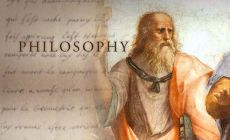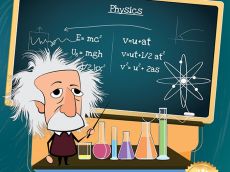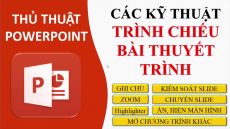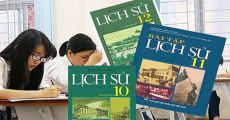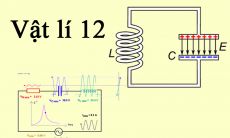Đề thi giữa HK2 môn Tiếng Anh 10 năm 2021
Trường THPT Hồng Bàng
-
Choose the word whose main stress is placed differently from the others in each group
Câu 1:
Choose the word whose main stress is placed differently from the others: music, peaceful, tempo, relax.
A. music
B. peaceful
C. tempo
D. relax
-
Câu 2:
Choose the word whose main stress is placed differently from the others: traditional, combination, communicate, rejuvenate.
A. traditional
B. combination
C. communicate
D. rejuvenate
-
Câu 3:
Choose the word whose main stress is placed differently from the others: African, energy, instrument, musician.
A. African
B. energy
C. instrument
D. musician
-
Câu 4:
Choose the word whose main stress is placed differently from the others: European, especially, emotional, considerate.
A. European
B. especially
C. emotional
D. considerate
-
Câu 5:
Choose the word whose main stress is placed differently from the others: popular, powerful, description, talented.
A. popular
B. powerful
C. description
D. talented
-
Choose the word whose underlined part has a different pronunciation from the others in each group
Câu 6:
Choose the word whose underlined part has a different pronunciation from the others: group, loud, proud, count.
A. group
B. loud
C. proud
D. count
-
Câu 7:
Choose the word whose underlined part has a different pronunciation from the others: beat, weak, feel, bread.
A. beat
B. weak
C. feel
D. bread
-
Câu 8:
Choose the word whose underlined part has a different pronunciation from the others: forks, instruments, feelings, thoughts.
A. forks
B. instruments
C. feelings
D. thoughts
-
Câu 9:
Choose the word whose underlined part has a different pronunciation from the others: foot, book, good, poor.
A. foot
B. book
C. good
D. poor
-
Câu 10:
Choose the word whose underlined part has a different pronunciation from the others: worked, talented, appreciated, rejuvenated.
A. worked
B. talented
C. appreciated
D. rejuvenated
-
Choose the correct form of verbs to complete the sentences
Câu 11:
His parents _______ him awarded the winner's medal.
A. saw
B. see
C. to see
D. seeing
-
Câu 12:
Cigarette _______ kills thousands of people every year.
A. smokes
B. smoke
C. to smoke
D. smoking
-
Câu 13:
She was a much ______ baby.
A. wanted
B. want
C. to want
D. wanting
-
Câu 14:
Everybody there looked under twenty and I really _______ my age.
A. felt
B. feel
C. to feel
D. feeling
-
Câu 15:
If you're ever in Oxford, _______ and visit us.
A. will come
B. come
C. to come
D. coming
-
Câu 16:
He's gone down to the corner shop _______ some milk.
A. will get
B. get
C. to get
D. getting
-
Câu 17:
The children spent the afternoon _______ in the garden.
A. played
B. play
C. to play
D. playing
-
Câu 18:
He _______ the girl on the arm to get her attention.
A. touched
B. touches
C. to touch
D. touching
-
Câu 19:
There are more people _______ at this time of the year so prices are high.
A. bought
B. buy
C. to buy
D. buying
-
Câu 20:
Not only _______ I speak to her, I even got her autograph!
A. did
B. do
C. to do
D. doing
-
Read the following passage carefully, and then select the best option A, B, C or D to complete it
Music, artful arrangement of sounds (21) _______ time. This definition is obviously very broad, but a narrower one would exclude (22) _______ much. Music is part of virtually every culture on (23) _______, but it varies widely among cultures in style and structure. Definitions of music can (24) _______ dramatically over a short time, as they have across the world during the 20th (25) _________.
Can music exist without (26) _______? Some philosophers argue that music should be defined as a kind of “mental (27) _______” and that the physical aspects of sound are simply by-products of this image. If you (28) _______ you can have a musical experience by imagining the sound of a piece of music, then you think (29) _______ can exist without sound. But most musical experiences involve producing or (30) _______ to physical characteristics of sound such as pitch and timbre (quality comparable to texture or color in sight).
Is the tape-recorded sound of a large metal-stamping machine music? Are 4 minutes (31) _______ 33 seconds of silence music? Is the activity of reading a (32) _______ of hundreds of seemingly unrelated objects, activities, and states of mind music? Each of these “(33) _______”, as well as many other sounds (or nonsounds), has been copyrighted (34) _______ a musical composition, performed, and recorded in the 20th century. One of the legacies of 20th-century music is to have blurred the definition of music as (35) _______ before.
Câu 21:
(21) ...................
A. through
B. over
C. along
D. across
-
Câu 22:
(22) .................
A. too
B. so
C. very
D. enough
-
Câu 23:
(23) .................
A. Earth
B. the moon
C. stars
D. the sun
-
Câu 24:
(24) ................
A. vary
B. change
C. remain
D. stay
-
Câu 25:
(25) .............
A. year
B. month
C. century
D. decade
-
Câu 26:
(26) .................
A. accent
B. voice
C. sound
D. noise
-
Câu 27:
(27) .............
A. drawing
B. painting
C. picture
D. image
-
Câu 28:
(28) ....................
A. know
B. say
C. see
D. think
-
Câu 29:
(29) ................
A. music
B. people
C. culture
D. images
-
Câu 30:
(30) ..................
A. reading
B. speaking
C. listening
D. writing
-
Câu 31:
(31) ..............
A. and
B. but
C. or
D. so
-
Câu 32:
(32) ................
A. title
B. book
C. list
D. menu
-
Câu 33:
(33) .................
A. phrases
B. letters
C. words
D. works
-
Câu 34:
(34) ..............
A. like
B. as
C. such as
D. for example
-
Câu 35:
(35) ...............
A. not
B. seldom
C. ever
D. never
-
Find the one mistake (A, B, C or D) in these sentences and then correct them
Câu 36:
Find the one mistake (A, B, C or D) and then correct it: (A) Would you like (B) to have lunch now (C) and (D) later?
A. Would
B. to have
C. and
D. later
-
Câu 37:
Find the one mistake (A, B, C or D) and then correct it: We are reminded (A) once again (B) of the writer's love (C) of (D) a sea.
A. once again
B. of
C. of
D. a sea
-
Câu 38:
Find the one mistake (A, B, C or D) and then correct it: I’d like (A) to have taken a holiday, (B) but I (C) didn’t have (D) too much money.
A. to have taken
B. but
C. didn’t have
D. too much
-
Câu 39:
Find the one mistake (A, B, C or D) and then correct it: “I can't come (A) in Saturday.” “That's (B) too bad - we've (C) already bought the tickets (D) so you'll still have to pay.”
A. in
B. too
C. already
D. so
-
Câu 40:
Find the one mistake (A, B, C or D) and then correct it: We’d love (A) to have gone (B) to the barbecue, (C) but it was (D) possible.
A. to have gone
B. to the barbecue
C. but
D. possible




